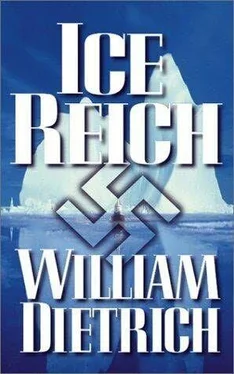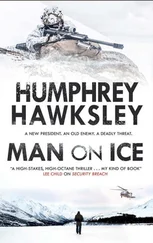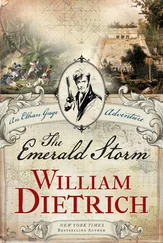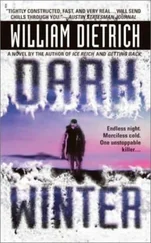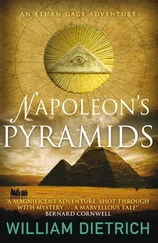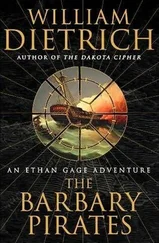William Dietrich - Ice Reich
Здесь есть возможность читать онлайн «William Dietrich - Ice Reich» весь текст электронной книги совершенно бесплатно (целиком полную версию без сокращений). В некоторых случаях можно слушать аудио, скачать через торрент в формате fb2 и присутствует краткое содержание. Жанр: Прочие приключения, на английском языке. Описание произведения, (предисловие) а так же отзывы посетителей доступны на портале библиотеки ЛибКат.
- Название:Ice Reich
- Автор:
- Жанр:
- Год:неизвестен
- ISBN:нет данных
- Рейтинг книги:4 / 5. Голосов: 1
-
Избранное:Добавить в избранное
- Отзывы:
-
Ваша оценка:
- 80
- 1
- 2
- 3
- 4
- 5
Ice Reich: краткое содержание, описание и аннотация
Предлагаем к чтению аннотацию, описание, краткое содержание или предисловие (зависит от того, что написал сам автор книги «Ice Reich»). Если вы не нашли необходимую информацию о книге — напишите в комментариях, мы постараемся отыскать её.
Ice Reich — читать онлайн бесплатно полную книгу (весь текст) целиком
Ниже представлен текст книги, разбитый по страницам. Система сохранения места последней прочитанной страницы, позволяет с удобством читать онлайн бесплатно книгу «Ice Reich», без необходимости каждый раз заново искать на чём Вы остановились. Поставьте закладку, и сможете в любой момент перейти на страницу, на которой закончили чтение.
Интервал:
Закладка:
The SS men cheered, the sound muffled behind their masks. The doctor studied their handiwork. There'd be some melt but the terrain was covered enough to discourage others from collecting. The secret was sealed.
"Gentlemen, the Reich now holds a monopoly on the trump card of history," he told them. "Let's take our prize back to the boat."
CHAPTER THIRTY-THREE
Greta was exhausted, slumped on a crate in the submarine's makeshift laboratory after almost thirty hours of nonstop work. She was alone. Schmidt, having succeeded in multiplying the microbe so they could test the antidote, had finally pleaded the weariness of age and staggered off. Now she sat breathing through a gauze mask, her hands rubbered, staring at the cages with a sense of ashen victory. Four of the rabbits were dead, their bodies elongated as if tormented on a rack. She could see the small white teeth of their final grimace. It was clear that the cave organism didn't immunize against the disease: giving it to the animals before they were injected with plague had done no good at all. The rest of the animals had survived, however, after being infected first by the microbe and then treated with antibiotic. They'd sickened briefly, some writhing in their cage, and then recovered. As a cure, the stuff worked.
She hated killing the laboratory animals. But maybe she had a bizarre tool now to save human lives and stop a greater madness, as Jurgen suggested. Had she done the right thing? Or was she making the unleashing of the microbe even more likely by combating it? In her weariness she felt she'd lost her moral compass and suddenly envied the certainty of the nuns she'd grown up with. But then what dilemmas did they ever face, the sheltered sisters? She wished she had Owen to talk to.
The biologist stretched, desperately tired and yet too tense to sleep. Conditions were so crude. A single water pipe and a crude drain. An alcohol stove. Planks had been set to make a workbench for Schmidt's microbial cultures, the originating spores harvested from the dry valley. The doctor hadn't wanted to draw on Germany's safely guarded microbe supply, he said, because of the risk involved in taking the cultures aboard ship sans antidote. Better, he explained to her, to wait until they arrived at Atropos to bring spore samples aboard. The cultures were lined under lamps now, petri platters of disease. Next to them were other cultures of more mild diseases, which they had felt safe bringing along. So far, the antibiotic seemed equally effective against them.
Greta intended to recommend destroying all the disease cultures before the U-boat sailed. Their usefulness had pretty much ended, and what was the point of taking chances?
The experiments suggested the expedition would be a success. Early tests in a vat showed promise that the drug organism could be grown and multiplied in Germany. Greta's experiment at reducing the scum to a more stable, storable, and usable dry powder with heat and evaporation had also succeeded: rabbits injected with it had recovered as rapidly as those given the compound raw. So the antibiotic worked, at least on animals or when swabbed or dripped into a lab dish. Admittedly, drugs were so mysterious and variable that the organism's true value couldn't be determined before clinical human tests at home. Still, they had the drug and that meant Jurgen must keep his promise: Owen would be released from the cave and would come to her again here in the submarine. Wouldn't he?
Unexpectedly, the idea depressed her. Owen's return would mean he would then attempt his escape, and even if he succeeded- which he admitted was unlikely- they'd be separated again at least until the end of the war. With Owen gone, the submarine would be sealed again for its long voyage home and she'd once more be imprisoned in a microcosm of the Reich she'd come to despise. Locked together again with Jurgen Drexler. She longed to run away with Owen but knew that if she did the alarm might be raised more quickly and their chances cut to zero. Aboard, she might delay or confuse any pursuit. To save him, she had to give him up. That was their plan.
The necessity was terrible.
With a sense of grim purpose, she reached into a drawer for the backpack she'd pilfered and set out for the ship's galley, where she hoped to steal enough food to keep a man alive on the open sea for- dare she think it?-several weeks.
Hart groaned. Hans was awakening him again by jabbing him with the tip of a boot. It was "morning," or what passed for morning in the sunless dungeon of the grotto. The pilot was still sore from his tantrum the evening before. The Nazi's arrogance had finally prompted Hart to take a tired, wild swing at the yellow-haired bastard and Owen had found himself expertly flipped onto his back, the Nazi's knees on his chest.
"You're too easy, Hart. I like to fight but you don't even make it fun." Hans had slapped him, almost casually, but enough to cut his lip. "You should learn to fight. It's part of being a man."
Hart spat at him and was cuffed so hard that his head rang. Then he lay still, defeated.
"He's a pussy," Hans said to Rudolf.
Hart was also tired from the increasingly long swims into the lake to gather the diaphanous organism. The SS men wouldn't help him, sitting instead at the top of the waterfall to haul up his harvest and playing cards in the lantern light. He knew they were trying to sap his energy as carefully as he was trying to conserve his strength. He was a slave and when the gathering was done his life would be over as well. No opportunity for escape had yet presented itself. As if to remind him of that, there was a clanking as he shifted his leg to get up. Each night Hans shackled him with a manacle to a cluster of cooking pots that served as a crude alarm.
"Like the bell of a goat," the storm trooper had said.
Now a new SS man named Oscar had descended for breakfast, unshouldering his heavy pack with a relieved grunt. The pans were unlocked from Hart's leg, rinsed quickly, and a small camp stove was turned on to heat water. Hart limped over to accept some bread. They didn't give him enough to eat for the work he was doing. When he'd complained, Bristle-Head had kicked his soup into the sand.
"You're in luck, American," the Nazi now growled. "We've got nearly as much as we can carry out of this hole. One more day! You're tired of swimming, no?"
"I'm tired of swimming."
"Yes, and you should learn to be tired of women." He waggled a spoon at the pilot. "They bring nothing but trouble. Look at you." The SS men laughed.
"Look at me." Hart chewed morosely then, thinking. "Oscar," he finally ventured, "that's a big pack you brought in if all we're doing is climbing out."
"Heavy, yes. But I get to leave it here."
"Leave it?"
The men looked at each other. Hans shrugged.
"Explosives," Bristle-Head explained. "To finish what the colonel started back in 1939. Seal this place up so that only Germany has this drug. Ka-boom!" He spread his hands, smiling. Then he squinted in mock suspicion. "You don't have other exits up your sleeve, do you?"
"Do you think I'd tell you?"
He sneered. "You'd tell me anything if I wanted you to."
"Well, the answer is no, but I think this place is going to blow anyway. Have you felt those tremors? That other volcano? Like the cave-in before."
Hans and Oscar looked uneasy but Bristle-Head nodded. "Good. We'll give Mother Nature a hand." He brought his hands together with a crash. "Now. Enough dawdling. Time to go swimming, Hart."
The pilot wearily stood and shed his boots and outer garments, stuffing them under a rock near his blanket. Then he trudged to the lip of the water chute and grasped the fixed rope, wincing as he stepped into the cold of the underground river. If he was going to escape he'd have to give those thick-headed bastards the slip on the climb out of the cave. First the shadowy lake, however. "I could use more help," he called.
Читать дальшеИнтервал:
Закладка:
Похожие книги на «Ice Reich»
Представляем Вашему вниманию похожие книги на «Ice Reich» списком для выбора. Мы отобрали схожую по названию и смыслу литературу в надежде предоставить читателям больше вариантов отыскать новые, интересные, ещё непрочитанные произведения.
Обсуждение, отзывы о книге «Ice Reich» и просто собственные мнения читателей. Оставьте ваши комментарии, напишите, что Вы думаете о произведении, его смысле или главных героях. Укажите что конкретно понравилось, а что нет, и почему Вы так считаете.
